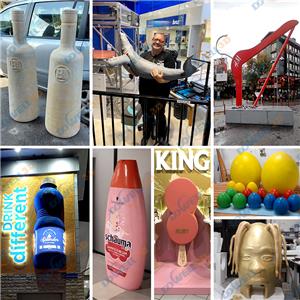Chinese Tomb-Sweeping Day Holiday 4/3-4/5
Qingming Festival, also known as Pure Brightness Festival or Tomb-sweeping Day, is one of the 24 segments of the Chinese calendar. It normally falls on the 4th or 5th of April, between spring plowing and summer weeding, and is a time to pay respects to one's ancestors and to tidy their gravesite. On this day, whole families, young and old, go to the gravesite of deceased family members to burn incense and perform a ritual offering while clearing away plant overgrowth from the gravesite.
Qingming Festival is when Chinese people visit the graves or burial grounds of their ancestors. Traditionally, people brought a whole rooster with them to the graves visited but the occasion has become less formal over time. The festival originated from Hanshi Day (寒食节, literally, Day with cold food only), a memorial day for Jie Zitui (介子推, or Jie Zhitui). Jie Zitui died in 636 BC in the Spring and Autumn Period. He was one of many followers of Duke Wen of Jin before he became a duke. Once, during Wen's 19 years of exile, they had no food and Jie prepared some meat soup for Wen. Wen enjoyed it a lot and wondered where Jie had obtained the soup. It turned out Jie had cut a piece of meat from his own thigh to make the soup. Wen was so moved he promised to reward him one day. However, Jie was not the type of person who sought rewards. Instead, he just wanted to help Wen to return to Jin to become king. Once Wen became duke, Jie resigned and stayed away from him. Duke Wen rewarded the people who helped him in the decades, but for some reason he forgot to reward Jie, who by then had moved into the forest with his mother. Duke Wen went to the forest, but could not find Jie. Heeding suggestions from his officials, Duke Wen ordered men to set the forest on fire to force out Jie. However, Jie died in the fire. Feeling remorseful, Duke Wen ordered three days without fire to honour Jie's memory. The county where Jie died is still called Jiexiu (介休, literally "the place Jie rests forever").
Qingming Festival is a time of many different activities, among which the main ones are tomb sweeping, taking a spring outing, flying kites. Some other lost customs like wearing willow branches on the head and riding on swings have added infinite joy in past days. The festival is a combination of sadness and happiness, perhaps bittersweet.
The major custom in Qingming Festival is tomb sweeping. According to folk religion, the spirits of deceased ancestors still live underground and look after the family; the tombs are said to be their houses; thus it is very important to keep the tombs clean.
The Qingming Festival is spent honoring the dead, which is one of many ways good Confucians demonstrate filial piety. On this day, people visit their family graves to remove any underbrush that has grown. They would uproot weeds near the gravesites, wipe the tombstones and decorate the tombstones with fresh flowers. And then they will set out offerings of food and paper money.
Not only is it a day for commemorating the dead, is it also a festival for people to enjoy themselves. During March, everything in nature takes on a new look, as trees turn green, flowers blossom, and the sun shines brightly. It is a fine time to go out and to appreciate the beautiful scenes of nature during the festival. This custom can be traced back to the Tang Dynasty and followed by each dynasty later till today. So visitors can be seen everywhere during the month of the festival.
Spring outings not only add joy to life but also promote a healthy body and mind.
Flying kites is an activity favored by many people during the Qingming Festival. Kites are not only flown at day time but also in the evening. Little lanterns are tied to the kite or to the string that holds the kite. And when the kite is flying in the sky, the lanterns look like twinkling stars that add unique scenery to the sky during the night. What makes flying kites during this festival special is that people cut the string while the kite is in the sky to let it fly free. It is said this brings good luck and that diseases can be eliminated by doing this.





